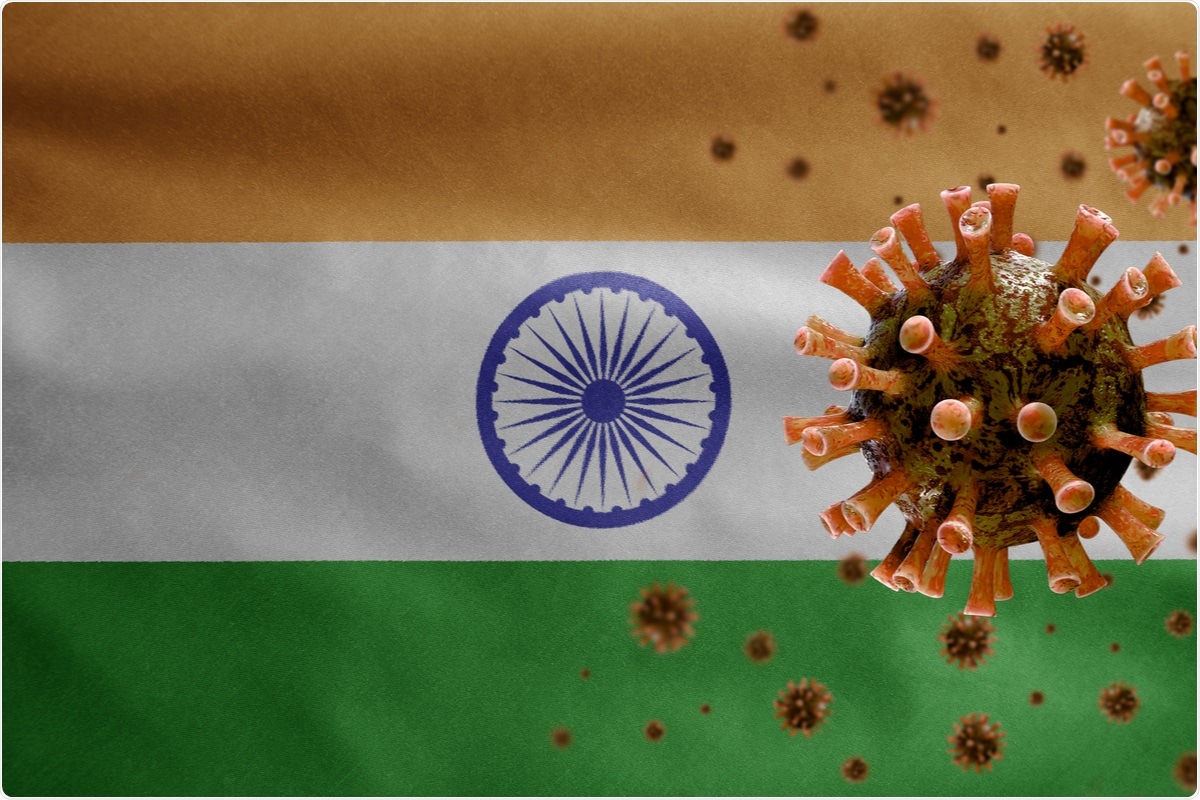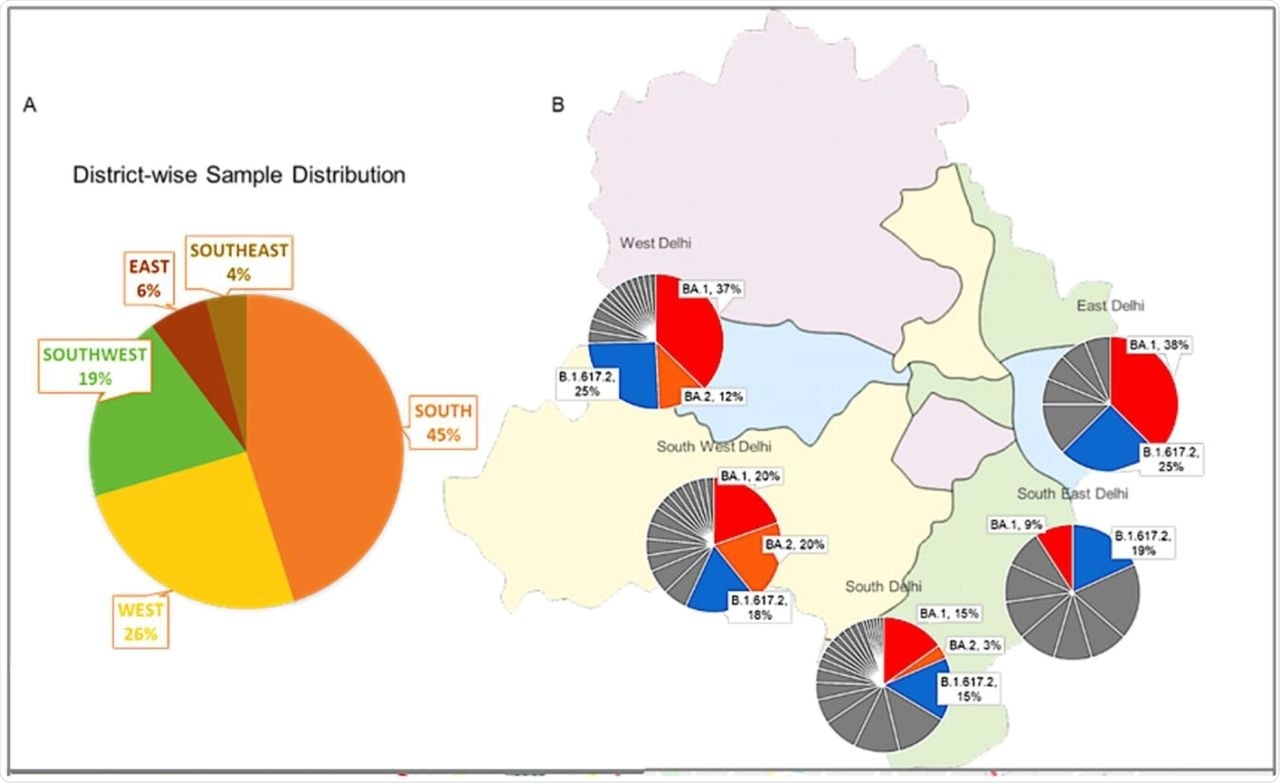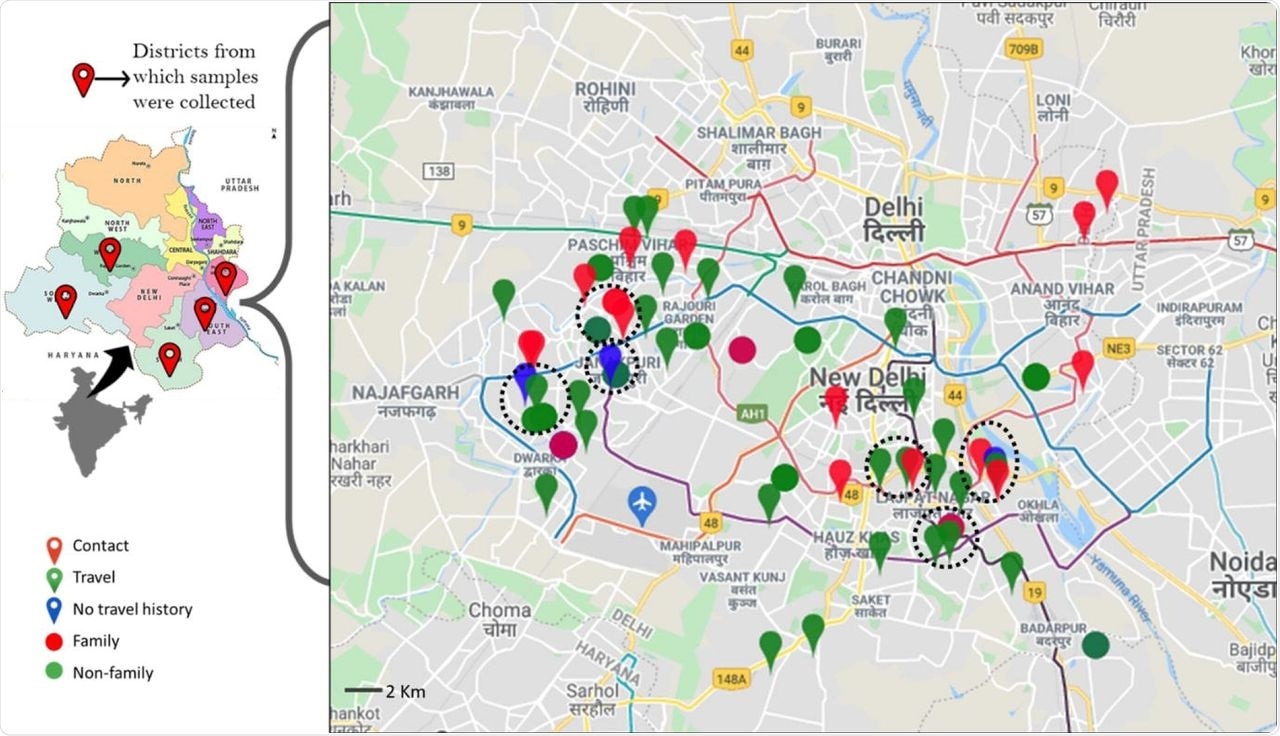
In a recent study published on the medRxiv* preprint server, researchers present evidence for early community transmission of the severe acute respiratory syndrome coronavirus 2 (SARS-CoV-2) Omicron variant in New Delhi, India.

Study: Evidence of early community transmission of Omicron (B1.1.529) in Delhi- A city with very high seropositivity and past exposure! Image Credit: REC Stock Footage / Shutterstock.com
Background
The emergence of the SARS-CoV-2 Omicron variant is directly associated with a substantial increase in the number of coronavirus disease 2019 (COVID-19) cases across the world. However, sufficient information regarding the characteristics of Omicron infections from developing countries is not yet available.
New Delhi, the capital of India, has a high SARS-CoV-2 seropositivity rate and experienced a deadly outbreak of the Delta variant between April 2021 and June 2021. Since Delhi also has a high rate of COVID-19 vaccination, the evaluation of community transmission of the Omicron variant in Delhi would provide valuable information.
About the study
In this prospective study, researchers from the Department of Clinical Virology at the Institute of Liver and Biliary Sciences (ILBS) in New Delhi analyzed all SARS-CoV-2 reverse transcription-polymerase chain reaction (RT-PCR)-positive respiratory specimens collected from five districts of Delhi between November 25, 2021, and December 23, 2021, using the whole-genome sequencing (WGS) method.
The authors also evaluated the formation of family clusters and the eventual community spread of the Omicron variant. The study commenced after Omicron was designated as a SARS-CoV-2 variant of concern (VOC) by the World Health Organization (WHO).
The complete demographic and clinical information of Omicron-infected patients were obtained using the Indian Council of Medical Research, New Delhi (ICMR) Specimen Referral Form (SRF) for COVID-19 and the patient information sheet (PIF) sent from each testing facility. Subsequently, missing information about the enrolled subjects was collected through telephonic interviewing.
Study findings
The findings showed that the Delta variant and its B.1.617.2 sublineages caused 182 of the 264 SARS-CoV-2 cases included in the study, whereas the Omicron variant was responsible for the remaining 82. Furthermore, BA.1 and BA.2 sublineages accounted for 73.1% and 26.8% of the Omicron cases, respectively.
The South and West districts of Delhi had the highest proportion of Delta cases with 45% and 26%, respectively. More adults aged 18 to 60 years were infected with the Delta variant as compared to the pediatric or elderly populations. Notably, 80.6% of the Delta-infected patients were fully vaccinated and 12.9% had a previous history of COVID-19.

Distribution of SARS-CoV-2 lineages and sub-lineages among five studied districts.
Among the 91 symptomatic Delta cases, 15 required hospitalizations, most of whom had underlying comorbidities. Two patients infected with the Delta variant died during the study period.
An average age of 35 years and male gender were associated with a higher incidence of Omicron infections. Importantly, 61% of the Omicron-infected patients were asymptomatic and did not require hospital care.
Only three patients infected with the Omicron variant were hospitalized, given they had hypertension and diabetes mellitus as underlying comorbidities. However, none of the hospitalized patients required intensive care.
Almost 88% of Omicron-infected patients were fully vaccinated and 1.2% had received two doses of the Moderna and one dose of the Covaxin vaccines. Omicron-infected patients became RT-PCR negative by an average of 10 days.
Out of the 82 Omicron cases, 32 patients had a history of travel to high SARS-CoV-2 seroprevalence areas or contacts to travelers and 50 patients showed no history of travel, thereby indicating community transmission. Nearly 72% of Omicron-infected patients with a travel or contact history were asymptomatic as compared to 54% of the community-acquired Omicron cases.
The West and South districts of Delhi reported the highest proportion of Omicron cases at 40.2% and 26.8%, respectively. Significant community transmission of the SARS-CoV-2 Omicron variant was recorded, along with a 1.8% to 54% steep increase in the daily progression of Omicron cases.

Geotagging of Omicron cases (n=82) from five districts of National Capital, Delhi. Black dotted circles represent local cluster with three or more cases in close vicinity.
Out of the 82 Omicron cases, 38 belonged to 14 family clusters. Among these, only four families had a documented international travel history.
Of the remaining 10 families, three were infected with Omicron following contact with a non-family member who had a recent history of international travel. However, the Omicron infections in the rest of the seven families were likely associated with the community transmission of Omicron.
Conclusions
According to the authors, this is the first study from India demonstrating the evidence of SARS-CoV-2 Omicron variant-led community transmission in Delhi. The current study reports a higher breakthrough rate, lower hospitalization, and symptomatic infection rates of Omicron in individuals with high seropositivity against the SARS CoV-2 infection. Furthermore, a definite shift from the predominance of the SARS-CoV-2 Delta variant to Omicron was also associated with this community transmission.
The current study may not represent the actual magnitude of the community transmission of Omicron in India's capital, as it was based on infections in only five districts of Delhi. Thus, further studies with a large population range are required for in-depth knowledge of epidemiology and the clinical course of Omicron in the community.
*Important notice
medRxiv publishes preliminary scientific reports that are not peer-reviewed and, therefore, should not be regarded as conclusive, guide clinical practice/health-related behavior, or treated as established information.
- Garg, R., Gautam, P., Suroliya, V., et al. (2022). Evidence of early community transmission of Omicron (B1.1.529) in Delhi- A city with very high seropositivity and past exposure! medRxiv. doi:10.1101/2022.01.10.22269041. https://www.medrxiv.org/content/10.1101/2022.01.10.22269041v1.
Posted in: Medical Science News | Medical Research News | Disease/Infection News
Tags: Coronavirus, Coronavirus Disease COVID-19, covid-19, Diabetes, Diabetes Mellitus, Epidemiology, Genome, Hospital, Intensive Care, Liver, Medical Research, Omicron, Polymerase, Polymerase Chain Reaction, Research, Respiratory, SARS, SARS-CoV-2, Severe Acute Respiratory, Severe Acute Respiratory Syndrome, Syndrome, Transcription, Virology

Written by
Shanet Susan Alex
Shanet Susan Alex, a medical writer, based in Kerala, India, is a Doctor of Pharmacy graduate from Kerala University of Health Sciences. Her academic background is in clinical pharmacy and research, and she is passionate about medical writing. Shanet has published papers in the International Journal of Medical Science and Current Research (IJMSCR), the International Journal of Pharmacy (IJP), and the International Journal of Medical Science and Applied Research (IJMSAR). Apart from work, she enjoys listening to music and watching movies.
Source: Read Full Article